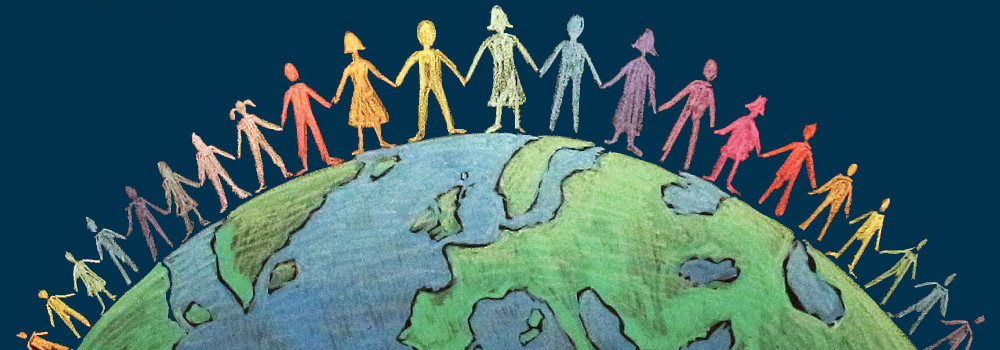
Global Citizenship Education
gced-banner-blue.png

UNESCO's approach
UNESCO’s approach to GCED is
- Holistic: addressing learning content and outcomes, pedagogy and the learning environment in formal, non-formal and informal learning settings
- Transformative: enabling learners to transform themselves and society
- Value based: promoting universally shared values such as non-discrimination, equality, respect and dialogue
- Part of a larger commitment to support the quality and relevance of education
UNESCO's focus areas
-
Global advocacy and policy dialogue
The UNESCO Global Forum on GCED, held every two years, is a unique global event dedicated to key issues of GCED policy and practice. The 3rd Forum will be held back-to-back with the ESD Global Action Programme Review Meeting, in March 2017 in Ottawa, Canada.
UNESCO regularly organizes policy and advocacy events on GCED in Headquarters and around the world in order to engage decision-makers, leading experts and innovative practitioners in a dialogue on effective strategies and practices to implement GCED.
-
The global measurement of progress on GCED and ESD (Target 4.7)
GCED and ESD are included in Target 4.7 of the Sustainable Development Goal on Education.
UNESCO will contribute to the measurement of GCED and ESD-related learning outcomes and support the monitoring of global progress on Target 4.7
Activities
- Develop measurement indicators for GCED and ESD
- Create an online databank of key data sources to monitor Target 4.7
- Develop thematic reports and trend analysis
-
Peace and human rights education
UNESCO’s approach to Global Citizenship Education builds on the Organization’s long standing experience in human rights and peace education (PHRE), which remain specific areas of work for the Organization.
UNESCO considers that education for human rights and the promotion of a culture of peace and non-violence enhance the quality education.
UNESCO’s work in this field is guided by its Constitution, the Universal Declaration of Human Rights, human rights treaties, the Recommendation concerning Education for International Understanding, Co-operation and Peace and Education relating to Human Rights and Fundamental Freedoms (1974), the World Programme for Human Rights Education (2005-ongoing) and Target 4.7 of the 2030 Sustainable Development Agenda.
Learn more about UNESCO's work on
-
Preventing violent extremism through education
In the context of the United Nations Plan of Action to Prevent Violent Extremism, UNESCO is supporting countries seeking to deliver education programmes that build young people’s resilience to violent extremist messaging and foster a positive sense of identity and belonging. This work is being undertaken within the conceptual framework of Global Citizenship Education.
Activities underway
- Providing an international platform for dialogue on education’s role in preventing violent extremism
- Developing guidance to mainstream PVE in education within the framework of GCED
- Teacher Guide for discussing violent extremism
More on Education as a tool to prevent violent extremism

